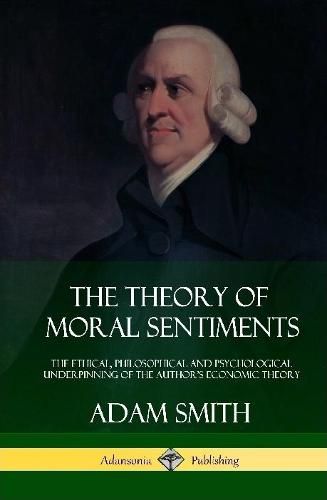Readings Newsletter
Become a Readings Member to make your shopping experience even easier.
Sign in or sign up for free!
You’re not far away from qualifying for FREE standard shipping within Australia
You’ve qualified for FREE standard shipping within Australia
The cart is loading…






This title is printed to order. This book may have been self-published. If so, we cannot guarantee the quality of the content. In the main most books will have gone through the editing process however some may not. We therefore suggest that you be aware of this before ordering this book. If in doubt check either the author or publisher’s details as we are unable to accept any returns unless they are faulty. Please contact us if you have any questions.
Adam Smith's theory on morals provides the philosophical bedrock for his future works on economics, including his most famous book The Wealth of Nations. Published in 1759, this work sees Smith follow the lead of his tutor and mentor Francis Hutcheson. He divides his ethical examinations into four broad categories: ethics and virtue; private rights and natural liberties; rights of the family; and state and individual rights. Although lesser known compared to Adam Smith's later works, The Theory of Moral Sentiments is an influential work of philosophy in its own right, with the greatest effect being upon its author.
$9.00 standard shipping within Australia
FREE standard shipping within Australia for orders over $100.00
Express & International shipping calculated at checkout
This title is printed to order. This book may have been self-published. If so, we cannot guarantee the quality of the content. In the main most books will have gone through the editing process however some may not. We therefore suggest that you be aware of this before ordering this book. If in doubt check either the author or publisher’s details as we are unable to accept any returns unless they are faulty. Please contact us if you have any questions.
Adam Smith's theory on morals provides the philosophical bedrock for his future works on economics, including his most famous book The Wealth of Nations. Published in 1759, this work sees Smith follow the lead of his tutor and mentor Francis Hutcheson. He divides his ethical examinations into four broad categories: ethics and virtue; private rights and natural liberties; rights of the family; and state and individual rights. Although lesser known compared to Adam Smith's later works, The Theory of Moral Sentiments is an influential work of philosophy in its own right, with the greatest effect being upon its author.